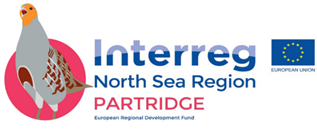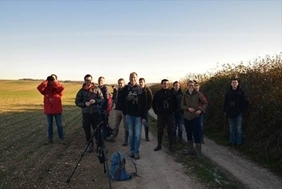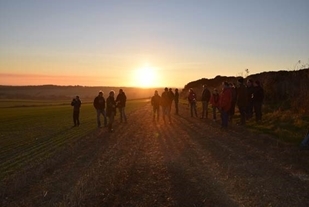 The Game and Wildlife Conservation Trust (GWCT), has secured funding for a North European project which will look at how new management solutions can improve biodiversity and ecosystem services by up to 30%.
The Game and Wildlife Conservation Trust (GWCT), has secured funding for a North European project which will look at how new management solutions can improve biodiversity and ecosystem services by up to 30%.
PARTRIDGE, Protecting the Area’s Resources Through Researched Innovative Demonstration of Good Examples, is one of 11 new projects which were approved recently by the Interreg North Sea Region. The programme aims to make the region more innovative, resilient and sustainable.
The four-year project will aim to develop and demonstrate new and improved methods for the long-term sustainable management of farmland ecosystems that can be applied to national agri-environment schemes across European borders.
PARTRIDGE, led by the GWCT, is a close partnership between Birdlife Netherlands, the Georg August University in Germany, the Flemish Land Agency (VLM) and the Research Institute for Nature and Forest in Belgium (INBO), the Flemish Hunters Association and regional farm and conservation advisory organisations, local farmers and hunters. The project will showcase best practice models at ten 500 ha farmland demonstration sites in four countries – UK, Netherlands, Germany and Belgium.
 Dr Francis Buner, Senior Conservation Scientist at the GWCT and Head of PARTRIDGE comments; “The main emphasis of PARTRIDGE is to demonstrate how the loss of farmland biodiversity can be reversed successfully across our partner countries. The key focus will be on grey partridge-tailored high quality habitat improvements, the loss of which are a key factor in the decline of farmland wildlife and ecosystem services across Europe.
Dr Francis Buner, Senior Conservation Scientist at the GWCT and Head of PARTRIDGE comments; “The main emphasis of PARTRIDGE is to demonstrate how the loss of farmland biodiversity can be reversed successfully across our partner countries. The key focus will be on grey partridge-tailored high quality habitat improvements, the loss of which are a key factor in the decline of farmland wildlife and ecosystem services across Europe.
Our objective is to show-case an increase of biodiversity indicators by 30% at our demonstration sites by 2020 and to influence future agri-environment schemes across our partner countries. To help achieve this we will study farmer’s attitudes in regards to agri-environmental schemes, form farmer clusters, organise farm walks and transnational demonstration site visits for farmers and civil servants."
“The grey partridge is one of the best indicators of farmland ecosystem health, hence where partridges thrive, biodiversity is high and ecosystem services are intact. In areas where few or no partridges exist, the farm environment is typically much degraded. We have found that the habitat option which delivers one of the highest overall benefits for grey partridges is wild bird seed mixes. Therefore, as part of the project, seed mixes based on a mix developed by our German partner will be introduced across our demonstration sites, along with beetle banks, winter stubbles and conservation headlands. There will also be additional winter feeding at all sites and improved predator management where possible.”
 Dr Buner adds; “Recently, all project partners met at GWCT Headquarters in Fordingbridge for their first meeting after PARTRIDGE was approved by the NSR programme Secretariat. During the visit, we organised a field visit and discussed management details for our 10 demonstration sites and monitoring protocols. The next meeting will be held in the Netherlands at the end of January.”
Dr Buner adds; “Recently, all project partners met at GWCT Headquarters in Fordingbridge for their first meeting after PARTRIDGE was approved by the NSR programme Secretariat. During the visit, we organised a field visit and discussed management details for our 10 demonstration sites and monitoring protocols. The next meeting will be held in the Netherlands at the end of January.”
Notes to editors
The Game & Wildlife Conservation Trust – providing research-led conservation for a thriving countryside. The GWCT is an independent wildlife conservation charity which has carried out scientific research into Britain’s game and wildlife since the 1930s. We advise farmers and landowners on improving wildlife habitats. We employ more than 60 post-doctoral scientists and other research staff with expertise in areas such as birds, insects, mammals, farming, fish and statistics. We undertake our own research as well as projects funded by contract and grant-aid from government and private bodies.
For information, contact:
Eleanor Williams
Telephone: 07592 025476
Email: press@gwct.org.uk